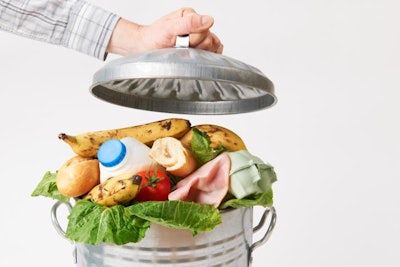
Food labels rarely tend to make the headlines, or even elicit much interest at all, which is perhaps surprising given that we all eat food and that food labeling is designed to communicate directly with us.
But some labeling, or rather consumer confusion surrounding it, is leading to consumers throwing away otherwise edible food, wasting money and, of course, the food and the resources that went into it.
That may be about to change, after the publication of a call to action from a multi-stakeholder group that includes some of the world’s largest food businesses, including Carrefour, Nestle, Tesco, Tyson Foods and Walmart.
The call to action comes from the Consumer Goods Forum (CGF), a network of 400 of the biggest consumer goods companies across 70 countries, and Champions 12.3, a broad grouping dedicated to achieving Target 12.3 of the United Nations’ Sustainable Development Goals.
They argue that date labeling, such as "sell by" or "use by," and their numerous variants, confuse consumers and need simplification and standardization, and they want the change implemented by 2020.
Small change, big difference
The proposal comprises three steps, the first of which would be using only one label at a time. The second would restrict food companies to a choice between only two date labels: one expiration date for perishable items (use by), and one food quality indicator for non-perishable items (best by), with wording tailored to regional context. The third step would be consumer education to better understand what labels mean.
Research conducted in the U.S. has found that the average family with children spends US$1,500 each year on food that is thrown away, while in the U.K. that figure stands at a little less than US$1,000. In the latter, chicken is thought to be most wasted of all meats, believed to be because producers have been so successful in reducing its cost, and this has resulted lower perceptions of value compared with other meats.
Streamlining date labeling worldwide would be “game changing in the fight against food waste,” said Dave Lewis, Tesco group chief executive and chair of Champions 12.3. Tesco's own research has found that streamlining date codes has helped customers waste less food and has reduced waste in the company’s own operations.
Change from farm to fork
Removing confusion from labeling can only be a good thing, and few would object to efforts to reduce waste, be it at production, retail or consumption level. It is estimated that 1.3 billion tons of food is lost or wasted each year, although not all of this occurs at consumer level..
Nearly 60 percent of the world’s 50 largest food companies have set waste reduction targets and more have active plans in place, often as part of sustainability programs and to slow climate change. Alongside these initiatives, a key may be educating consumers to understand that cheap does not necessary equate to low value.


















